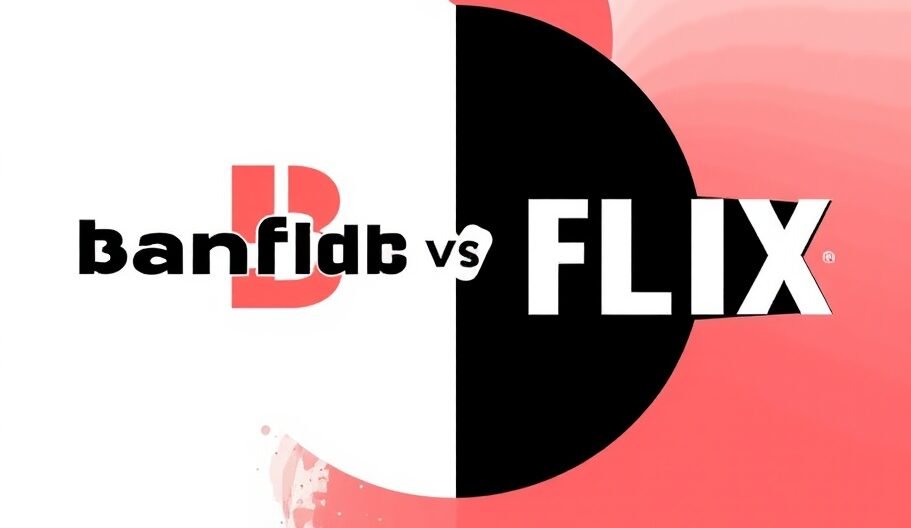You might be scratching your head right now, wondering what on earth "Banflix Arab" even means. Well, buckle up because we're diving deep into the world of streaming restrictions in the Arab region. If you're a Netflix lover or someone who enjoys binge-watching your favorite shows, this topic is a must-know. Banflix Arab has become a buzzword in the streaming community, and trust me, it's not just about Netflix being banned—it's a whole phenomenon!
Let's face it, streaming services have revolutionized the way we consume entertainment. From binge-watching entire seasons of your favorite series to discovering hidden gems from around the world, platforms like Netflix, Amazon Prime, and Disney+ have changed the game. But what happens when these platforms meet cultural, political, and religious boundaries? That's where Banflix Arab comes into play.
This article isn't just about giving you the facts—it's about shedding light on the nuances of streaming restrictions in the Arab world. Whether you're a curious traveler, a tech enthusiast, or someone who simply wants to understand the global impact of streaming bans, you're in the right place. So grab a cup of coffee, sit back, and let's explore the ins and outs of Banflix Arab together.
What Exactly is Banflix Arab?
Banflix Arab is a term that has gained traction over the years, referring to the restrictions placed on streaming platforms like Netflix, Amazon Prime, and others in certain Arab countries. These restrictions aren't random—they're often tied to cultural sensitivities, political concerns, and even religious beliefs. But here's the kicker: not all Arab countries impose the same restrictions, which makes the situation even more complex.
Streaming Platforms Under Fire
Think about it—streaming platforms offer a wide range of content, from Hollywood blockbusters to indie films, and even edgy series that push boundaries. While this diversity is celebrated in many parts of the world, it can clash with the values and norms of conservative societies. In some Arab countries, certain shows or movies are deemed inappropriate due to themes like violence, nudity, or even political satire. It's like walking a tightrope between freedom of expression and cultural sensitivity.
Why Does Banflix Arab Exist?
Now, you might be wondering why Banflix Arab exists in the first place. Well, it's a mix of factors. For starters, some governments in the Arab world see streaming platforms as a threat to their cultural identity. Others worry about the influence of Western media on their younger generations. And let's not forget the religious aspect—certain content may be considered offensive or disrespectful to Islamic values. It's a delicate balance that often leads to bans or restrictions.
Top Reasons Behind Streaming Restrictions in the Arab World
Let's break down the main reasons why streaming platforms face restrictions in the Arab region. It's not just about banning Netflix—it's about understanding the bigger picture.
- Cultural Sensitivities: Many Arab countries have strict cultural norms that clash with the content offered by streaming platforms. Themes like nudity, LGBTQ+ representation, and explicit language are often flagged as inappropriate.
- Political Concerns: Some governments fear that certain documentaries or series could influence public opinion or spark unrest. Political satire, in particular, is a sensitive topic in many Arab nations.
- Religious Beliefs: Islam plays a significant role in the Arab world, and some content may be deemed disrespectful or offensive to religious values. This includes anything that challenges Islamic teachings or portrays religious figures in a negative light.
- Economic Factors: Believe it or not, economics can also play a role. Some countries worry that local entertainment industries will suffer if international streaming platforms dominate the market.
How Do Arab Countries Enforce Streaming Restrictions?
Now that we know why Banflix Arab exists, let's talk about how these restrictions are enforced. It's not as simple as flipping a switch—governments use a variety of methods to control what people can watch online.
Blocking Access to Platforms
One of the most common methods is blocking access to streaming platforms altogether. If you try to access Netflix or Amazon Prime in certain Arab countries, you might see an error message or be redirected to a government website. It's like hitting a brick wall every time you try to stream your favorite show.
Content Filtering
Some countries take a more nuanced approach by filtering out specific content rather than banning entire platforms. This means that certain shows or movies might be unavailable, while others remain accessible. It's like playing a game of cat and mouse—streaming services constantly try to stay one step ahead of the restrictions.
Collaboration with Local Providers
In some cases, governments work with local streaming providers to offer alternative platforms that comply with cultural and religious norms. These platforms might offer a curated selection of content that aligns with the values of the region. It's a win-win situation for governments and local businesses, but it can be frustrating for viewers who crave global content.
The Impact of Banflix Arab on Viewers
So, how does Banflix Arab affect the average viewer in the Arab world? Let's take a closer look at the impact.
Reduced Access to Global Content
For many viewers, Banflix Arab means missing out on the latest trends in global entertainment. Imagine not being able to watch the newest season of your favorite Netflix series or catching up on the hottest Hollywood blockbusters. It's like being stuck in a time warp while the rest of the world moves on.
Increased Use of VPNs
Of course, where there's a will, there's a way. Many viewers in the Arab world turn to Virtual Private Networks (VPNs) to bypass restrictions and access blocked content. While this solution works for some, it's not without its risks. Using a VPN can raise privacy concerns and even lead to legal issues in certain countries.
Growing Demand for Local Content
Interestingly, Banflix Arab has also spurred a demand for local content. As viewers seek alternatives to banned platforms, they're discovering homegrown talent and stories that resonate with their cultural identity. It's like a silver lining in an otherwise cloudy situation.
Exploring Alternatives to Banned Streaming Platforms
If you're living in an Arab country with strict streaming restrictions, don't despair. There are plenty of alternatives to explore. Here are a few options to consider:
- Shahid: A popular streaming platform in the Arab world, Shahid offers a wide range of Arabic content, including series, movies, and documentaries. It's like Netflix, but with a local twist.
- OSN: Another great option for viewers in the Arab region, OSN provides access to both Arabic and international content. From Hollywood blockbusters to Bollywood hits, it's got something for everyone.
- Arabseed: For those who prefer free streaming options, Arabseed is a go-to platform for Arabic content. Just be warned—it might not be as reliable as paid services.
The Future of Banflix Arab
So, what does the future hold for Banflix Arab? Will streaming restrictions continue to tighten, or will we see a shift towards more open access? Let's explore the possibilities.
Technological Advancements
As technology continues to evolve, streaming platforms are finding new ways to bypass restrictions. From AI-driven content filtering to advanced encryption techniques, the battle between streaming providers and governments is far from over.
Changing Cultural Norms
It's worth noting that cultural norms in the Arab world are not static—they're constantly evolving. As younger generations become more exposed to global influences, we might see a shift in attitudes towards streaming content. This could lead to more lenient restrictions or even the lifting of bans altogether.
Global Pressure
Finally, global pressure could play a role in shaping the future of Banflix Arab. As more countries embrace the digital age, there's a growing expectation for open access to information and entertainment. Governments in the Arab world might find themselves under pressure to loosen restrictions and embrace the global streaming revolution.
Conclusion: Embracing the Streaming Revolution
As we wrap up this exploration of Banflix Arab, it's clear that streaming restrictions in the Arab world are a complex issue with no easy answers. While the current situation may seem frustrating for viewers, it's important to remember that change takes time. By understanding the reasons behind these restrictions and exploring alternative platforms, we can navigate the streaming landscape with confidence.
So, what's next? If you're passionate about global entertainment and want to stay informed about the latest developments in the streaming world, why not share this article with your friends? Or better yet, leave a comment below and let us know your thoughts on Banflix Arab. Together, we can keep the conversation going and work towards a future where everyone has access to the content they love.
Table of Contents
- What Exactly is Banflix Arab?
- Top Reasons Behind Streaming Restrictions in the Arab World
- How Do Arab Countries Enforce Streaming Restrictions?
- The Impact of Banflix Arab on Viewers
- Exploring Alternatives to Banned Streaming Platforms
- The Future of Banflix Arab
- Conclusion: Embracing the Streaming Revolution


